#Björn Stefánsson
Text















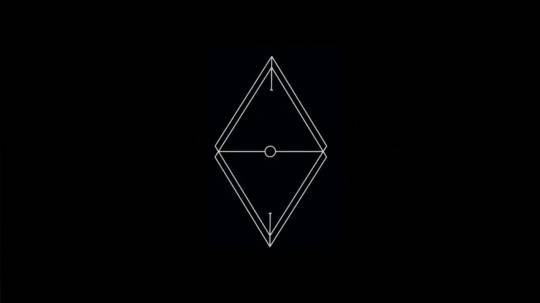

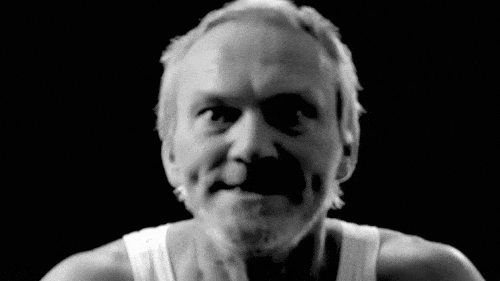





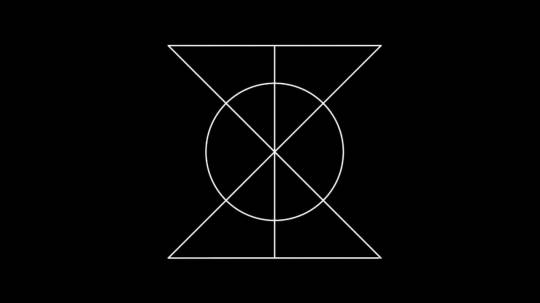


Beneath the Skin - Of Monsters And Men
Crystals (Siggi Sigurjóns);
Human (Björn Stefánsson);
Hunger (Natalie G. Gunnarsdóttir);
Wolves without teeth (Erna Jónasdóttir and Hrefna Jónasdóttir);
Empire (Guðrún Bjarnadóttir);
Slow life (Tómas Lemarquis);
Organs (Nanna Bryndís Hilmarsdóttir);
Black water (Guðrún Gísladóttir);
Thousand eyes (Ingvar E. Sigurðsson);
I of the storm (Atli Freyr Demantur);
We sink (Heba Aljakari; Jimmy Salinas; Julie Loparia; Kansha Iyassu; Khaalid Saaid Jeylani; Majid Zarei; Nazanin Askari);
Backyard (Dýrfinna Benita);
Winter sound (Ólafur Darri Ólafsson)
#of monsters and men#omam#beneath the skin#crystals#human#hunger#wolves without teeth#empire#slow life#organs#black water#thousand eyes#i of the storm#we sink#backyard#winter sound#lyrics#lyric video#iceland#music#2015#indie#indie music#indie folk
23 notes
·
View notes
Text
Stefán Karl on Unga Ísland (2018) - Reuploaded with two versions.
Back in 2019, I posted the episode of Unga Ísland with Stefán Karl as well as uploading a version of it on my youtube channel. Unfortunately for the longest time that video was blocked for people in the USA and contained very suggestive scenes in a safe sex PSA that I worried Youtube might spot and get me in trouble for.
To be on the safe side I made a censored for youtube version as well as a uncensored version. The new ones are also slightly higher quality than the one I had uploaded, originally from here.
And one last thing, I added Icelandic and English closed captions! With the Icelandic transcription being made by the GoTranscript service and the translation was by me.
Stefán Karl on Unga Ísland - (CENSORED FOR YOUTUBE)
youtube
Stefán Karl on Unga Ísland - (UNCENSORED)
youtube
This description was translated from the original upload that was removed from RÚV's website:
Unga Ísland, also known as “Young Iceland”, is about the youth culture in Iceland between 1990 and 2000. Interviewees in the episode are Birgitta Haukdal, Bragi Valdimar Skúlason, Ilmur Kristjánsdóttir, Lára Björg Björnsdóttir and Stefán Karl Stefánsson.
They are documentaries about the youth culture in Iceland in the past. Each episode spans a decade and people are dissected through interviews with nationally famous Icelanders. Directed by: Björn B. Björnsson. Production: Reykjavík Films.
Originally released on 15. Feb. 2018
youtube
An Advert for Unga ísland which Stefán Karl was a part of.
𝙁𝙤𝙧 𝙩𝙝𝙤𝙨𝙚 𝙞𝙣𝙩𝙚𝙧𝙚𝙨𝙩𝙚𝙙, 𝙮𝙤𝙪 𝙘𝙖𝙣 𝙙𝙤𝙬𝙣𝙡𝙤𝙖𝙙 𝙩𝙝𝙚 𝙪𝙣𝙚𝙙𝙞𝙩𝙚𝙙 𝙚𝙥𝙞𝙨𝙤𝙙𝙚 𝙖𝙣𝙙 𝙩𝙝𝙚 𝙨𝙪𝙗𝙩𝙞𝙩𝙡𝙚𝙨 𝙛𝙧𝙤𝙢 𝙝𝙚𝙧𝙚!
#stefán karl stefánsson#stefan karl stefansson#stefan karl#stefán karl#youtube#personal life#robbie rotten#2018#Youtube
7 notes
·
View notes
Text
Torino Spiritualità 2023

Per la sua 19 edizione Torino Spiritualità dedica cinque giorni Agli assenti.
Della morte ovvero della vita, che saranno un’opportunità per scrittori, pensatrici, filosofi, artisti e per il pubblico di provare a riflettere sul rapporto con la morte, dove sono il mistero del dopo e la memoria degli assenti a rendere enigmatica la fine, ma nella sua certezza è possibile trovare il senso della presenza, di quel cammino che è la vita.
Il festival, ideato e organizzato dalla Fondazione Circolo dei lettori, si terrà da mercoledì 27 settembre a domenica 1 ottobre tra il Circolo dei lettori, teatri, cinema e luoghi della cultura di Torino, per un’occasione d’incontro con la fragilità umana, tanto necessaria quanto scomoda e arricchente.
Tra le voci dell’evento ci saranno Björn Larsson, Éric-Emmanuel Schmitt, Stefano Massini, Chiara Valerio, François Jullien, Chandra Livia Candiani, Vito Mancuso, Guidalberto Bormolini, Massimo Recalcati, Ilaria Gaspari, Jón Kalman Stefánsson, Massimo Mantellini, Chiara Alessi, Cristiano Godano, Gabriella Caramore, Paolo Nori, Vittorio Lingiardi e Emanuele Trevi.
L’inaugurazione della 19 edizione, in programma mercoledì 27 settembre, trasformerà la chiesa di San Filippo Neri, la più grande di Torino, in un Death Café, con il nome di The biggest Death Café ever.
A introdurre il Death Café di apertura di Torino Spiritualità sarà il monaco e tanatologo Guidalberto Bormolini e dopo il suo intervento, il pubblico della chiesa di San Filippo Neri verrà diviso in 60 gruppi: 600 potenziali persone, 10 per ogni tavolo, guidate da un facilitatore, per una discussione comune sul perché la morte faccia parte della vita.
L’evento è stata realizzato con la collaborazione di Fondazione Fabretti Onlus, Fondazione FARO, Ordine Psicologi Piemonte, Scuola Capitale Sociale. Main sponsor SOCREM – Società per la Cremazione Torino.
Dopo l’inaugurazione, alle 21 al Cinema Massimo, Guidalberto Bormolini incontrerà l’attore e artista Alessandro Bergonzoni; moderati dall’antropologa Cristina Vargas, per l’incontro Difficile non morire tutti quando muore qualcuno e sempre alle 21, al Circolo dei lettori, lo storico della scienza Francesco Paolo de Ceglia converserà con la scrittrice Chiara Valerio sul mito dell’immortalità nel dialogo Vampyr. La vita per sempre e nella sala Gioco del Circolo il sacerdote, scrittore e cappellano del carcere di Padova Marco Pozza rifletterà sull’esperienza dell’uccidere in La mia anima è triste fino alla morte.
Inoltre il Circolo dei lettori ospiterà altre sessioni di Death Café, giovedì 28 settembre con la tanatologa Marina Sozzi, venerdì 29 con lo psicologo Andrea Bovero, sabato 30 con il tanatologo Davide Sisto e domenica 1 ottobre con Natalia Pazzaglia, fondatrice di una piattaforma online di sostegno al lutto.
Read the full article
0 notes
Photo
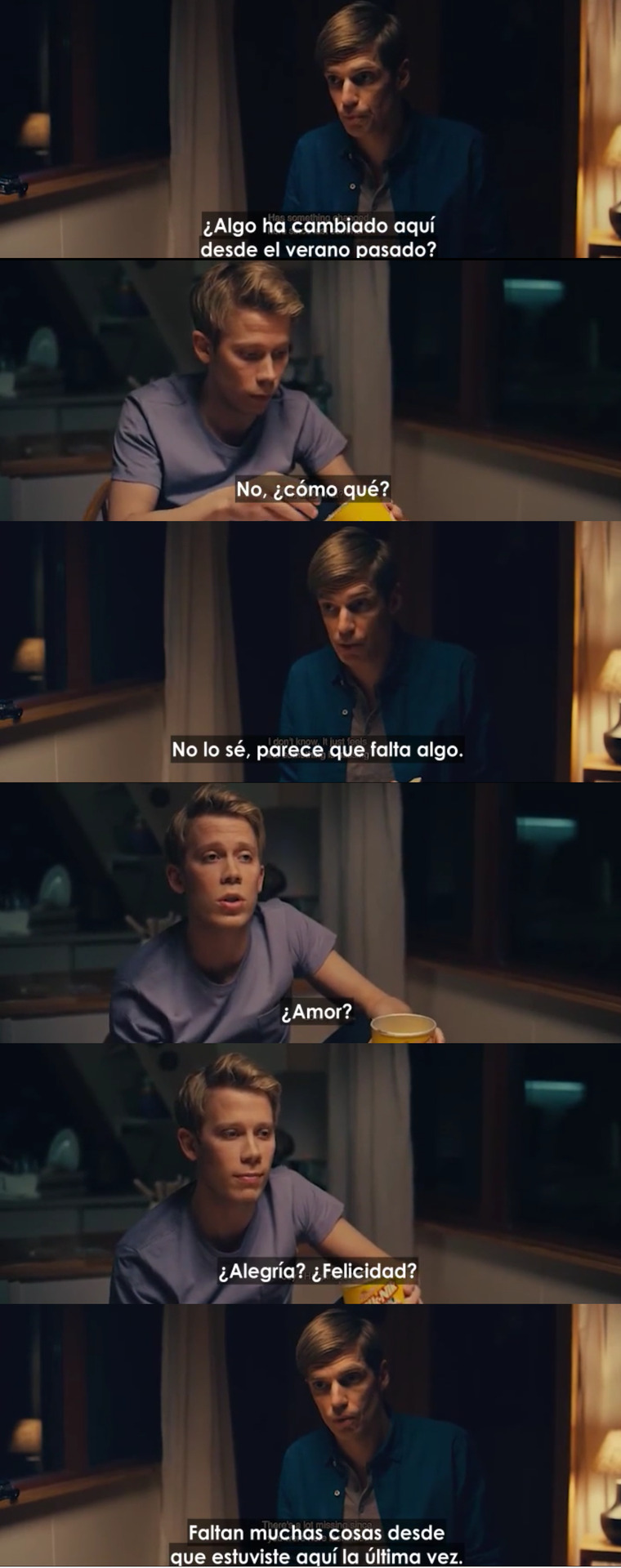
Rökkur, 2017. Directed by Erlingur Thoroddsen
#Rökkur#Rift#Fisura#Cine LGBT+#Cine independiente#LGBT cinema#Iceland cinema#Björn Stefánsson#Sigurður Þór Óskarsson#Gay#Erlingur Thoroddsen#2017 movies#lgbt movie
2 notes
·
View notes
Text
March 27, 2021
Björn watched some Pixar movies with Magnus, Lukas, and Emil over Zoom today. Emil and Lukas often pointed out Easter eggs, and Magnus was always overdramatic in his emotional reactions, all of which entertained Björn while he watched the movies.
#hetalia#aph sweden#aph denmark#aph norway#aph iceland#hws sweden#hws denmark#hws norway#hws iceland#björn östberg#magnus christensen#lukas thomassen#emil stefánsson#daily sweden
6 notes
·
View notes
Photo

Rökkur (Rift). Erlingur Óttar Thoroddsen. 2017. Iceland.
21 notes
·
View notes
Text
headcanon #2
here are my headcanons for the nordics’ human names right now (although these are subject to change):
denmark: magnus christensen
norway: lukas thomassen
iceland: emil stefánsson
finland: timo väinämöinen
sweden: björn östberg
#hetalia#axis powers hetalia#hetalia world series#aph#hws#aph nordics#hws nordics#aph denmark#aph norway#aph iceland#aph finland#aph sweden#hws denmark#hws norway#hws iceland#hws finland#hws sweden#headcanons
16 notes
·
View notes
Text
[VER] Festival de la canción de Eurovisión: La historia de Fire Saga Película Completa HD en Español Latino Pelisplus
Ver Festival de la canción de Eurovisión: La historia de Fire Saga (Eurovision Song Contest: The Story of Fire Saga) Película Completa en español latino.

Festival de la canción de Eurovisión: La historia de Fire Saga 2020 Película Completa HD Online Sub Español, Castellano y Latino
Festival de la canción de Eurovisión: La historia de Fire Estreno en español doblada España y Latinoamérica (Argentina, Bolivia, Chile, Colombia, Costa Rica, Cuba, Ecuador, El Salvador, Guatemala, Honduras, México, Nicaragua, Panamá, Paraguay, Perú, República Dominicana, Uruguay y Venezuela): ¿Para cuando?
~¡Ver Ahora!~
=================================================
⬇▶️Ver Pelicula 👉 http://cinepelis.xyz/es/movie/531454/eurovision-song-contest-the-story-of-fire-saga
⬇▶️ Alternativa de Enlace :https://bit.ly/3ipQL9H
Audio: Español
Subtítulos: Castellano y Español Latino
¿Dónde puedes ver la película Festival de la canción de Eurovisión: La historia de Fire? ¡ver AQUI! ver película Festival de la canción de Eurovisión: La historia de Fire completa en Español sin cortes y sin publicidad, Festival de la canción de Eurovisión: La historia de Fire pelicula completa (2020) esta disponible, como siempre en Repelis. Nuestro contenido está adaptado al Subtitulada Español, Castellano y Latino.
=================================================
Festival de la canción de Eurovisión: La historia de Fire Pelicula Completa Netflix (2020)
Festival de la canción de eurovisión: la historia de fire saga filmaffinity
Festival de la canción de eurovisión: la historia de fire saga netflix
Festival de la canción de eurovisión: la historia de fire saga wikipedia
Festival de la canción de eurovisión: la historia de fire saga imdb
Título original: Eurovision Song Contest: The Story of Fire Saga Año : 2020
Duración : 123 min. País : Estados Unidos Dirección: David Dobkin Guion Will Ferrell, Andrew Steele
Música Atli Örvarsson Fotografía Danny Cohen Género Comedia. Musical | Música, Web oficial
‘Eurovision Song Contest: The Story of Fire Saga’ Reparto
Rachel McAdams, Will Ferrell, Pierce Brosnan, Demi Lovato, Dan Stevens, Jamie Demetriou, Natasia Demetriou, Ólafur Darri Ólafsson, Melissanthi Mahut, Jóhannes Haukur Jóhannesson, Björn Hlynur Haraldsson, Elena Saurel, Nína Dögg Filippusdóttir, Marcus Garvey, Julian Miller, Jóhann G. Jóhannsson, Arnmundur Ernst Björnsson, Elina Alminas, Kajsa Mohammar, Aiste Gramantaite, Gudmundur Thorvaldsson, Paul Riddell, Steve Saunders, Elin Petersdottir, Michel Alexandre Gonzalez, Jill Buchanan, Deano Mitchison, Björn Stefánsson, Smari Gunn, Samantha Russell, Elee Nova, Grant Crookes, Hannes Óli Ágústsson, Mark Adams, Kornelia Horvath, Salvador Sobral, Tómas Lemarquis, Bobby Lockwood, Jon Kortajarena, Kadrolsha Ona Carole, Graham Norton, Hélène Cardona, Christopher Jeffers, Milan van Weelden, Jessica Grist, Ruth Horrocks, Daniel Eghan, Anastasia Zabarchuk, Michael Hennessy, Brie Kristiansen, Conchita Wurst, Alfredo Tavares, Sophia-Grace Donnelly, Eleanor Williams, ABBA, Cosmina Maria Popa, Matt Lindquist, Maria Arenlind, Alfrun Rose, Adrian Mozzi, Steven Michael-O'Hara, Chris Beaumont, Daniela Tocari, Michael Hillberg, Jason Lines, Sarah Guerin, Josh Zaré, Alexander Rybak, Halldora Thoell, Rebecca Harrod, Mark Mottram, Stuart Whelan, Lynseyann Mulvey, Hlynur Þorsteinsson, Ellie Selwood, Charlotte Sharland, Theo Ip, Indy Singh, Zack Propert, Denis Michallet, Sergei Lebedev, Loreen, Dee Pearce, Jamala, Junior Delius, Lana Ish-Muhametova, Richard Price
‘Eurovision Song Contest: The Story of Fire Saga’ Productora
Distribuida por Netflix. Gary Sanchez Productions, Netflix, European Broadcasting Union, Gloria Sanchez Productions, Truenorth Productions
‘Eurovision Song Contest: The Story of Fire Saga’ Sinopsis
Lars (Will Ferrell) y Sigrit (Rachel McAdams) son dos músicos islandeses desconocidos que tienen delante la oportunidad de su vida: representar a su país en el concurso musical más importante del mundo. Ahora podrán demostrar que hay sueños por los que vale la pena luchar.
Etiquetas:
Festival de la canción de Eurovisión: La historia de Fire pelicula completa netflix gratis
Festival de la canción de Eurovisión: La historia de Fire pelicula completa youtube
Festival de la canción de Eurovisión: La historia de Fire pelicula completa en español latino repelis online gratis
Festival de la canción de Eurovisión: La historia de Fire pelicula completa online gratis
Festival de la canción de Eurovisión: La historia de Fire pelicula completa online HD-1080p
Festival de la canción de Eurovisión: La historia de Fire pelicula completa online sub español
Festival de la canción de Eurovisión: La historia de Fire pelicula completa gratis 2020
Festival de la canción de Eurovisión: La historia de Fire pelicula completa en español latino gratis
Festival de la canción de Eurovisión: La historia de Fire pelicula completa en español gratis
Festival de la canción de Eurovisión: La historia de Fire pelicula completa subtitulada en español
Festival de la canción de Eurovisión: La historia de Fire pelicula completa subtitulada
Festival de la canción de Eurovisión: La historia de Fire pelicula completa en español repelis
Festival de la canción de Eurovisión: La historia de Fire 2020 pelicula completa en espanol latino
Festival de la canción de Eurovisión: La historia de Fire (2020) pelicula completa castellano
Festival de la canción de Eurovisión: La historia de Fire online
pelisplus Festival de la canción de Eurovisión: La historia de Fire gratis
Festival de la canción de Eurovisión: La historia de Fire pelicula completa gratis online
Festival de la canción de Eurovisión: La historia de Fire (2020) Pelicula Completa En Español
Festival de la canción de Eurovisión: La historia de Fire (2020) Pelicula Completa Mexicano
Festival de la canción de Eurovisión: La historia de Fire (2020) Pelicula Completa Castellano
Festival de la canción de Eurovisión: La historia de Fire (2020) Pelicula Completa En Latino
Festival de la canción de Eurovisión: La historia de Fire (2020) Pelicula Completa Argentina
Festival de la canción de Eurovisión: La historia de Fire (2020) Pelicula Completa En Bolivia
Festival de la canción de Eurovisión: La historia de Fire (2020) Pelicula Completa Chilena
Festival de la canción de Eurovisión: La historia de Fire (2020) Pelicula Completa En Colombia
Festival de la canción de Eurovisión: La historia de Fire (2020) Películas costarricenses completes
Festival de la canción de Eurovisión: La historia de Fire (2020) Pelicula Completa Paraguay
Festival de la canción de Eurovisión: La historia de Fire (2020) Pelicula Completa Cubana
Festival de la canción de Eurovisión: La historia de Fire (2020) Pelicula Completa En Peru
Festival de la canción de Eurovisión: La historia de Fire (2020) Pelicula Completa Venezuela
Festival de la canción de Eurovisión: La historia de Fire (2020) Pelicula Completa Uruguay
Festival de la canción de Eurovisión: La historia de Fire (2020) Pelicula Completa Panama
Festival de la canción de Eurovisión: La historia de Fire (2020) Pelicula Completa Honduras
Festival de la canción de Eurovisión: La historia de Fire (2020) Pelicula Completa Nicaragua
Festival de la canción de Eurovisión: La historia de Fire (2020) Pelicula Completa Puerto Rico
Festival de la canción de Eurovisión: La historia de Fire (2020) Pelicula Completa Equatorial Guinea
Festival de la canción de Eurovisión: La historia de Fire (2020) Pelicula Completa El Salvador
Festival de la canción de Eurovisión: La historia de Fire (2020) Pelicula Completa Ecuador
Festival de la canción de Eurovisión: La historia de Fire (2020) Pelicula Completa Dominican Republic
Festival de la canción de Eurovisión: La historia de Fire (2020) Doblaje España
1 note
·
View note
Text
Cold As Hell By Lilja Sigurðardóttir

Cold As Hell
By Lilja Sigurðardóttir
Translated by Quentin Bates
Orenda Books
Kindle publication date: 28 August 2021
Paperback publication date: 28 October 2021
It’s sometimes hard to believe that it is less than 4 years since Lilja Sigurðardóttir’s English language debut Snare was first published in the English language. It was the first of three books in the Reykjavík Noir series featuring drug smuggler Sonya and her corrupt banker partner Agla. Revealing tense storylines with strong and original characterisations, Sigurðardóttir started to make her international mark on the continually expanding Icelandic Noir scene.
Already known in her home country for 2 earlier novels and writing an award winning play called Big Babies (Stóru Börnin), her stock has continued to rise elsewhere with the 2020 English language publication of standalone title Betrayal about an independent minded politician Ursula. I described Betrayal as evoking a few memories of Borgen “but a very different beast with regular scenes of menace and intrigue.” Since then she has co written Katla, Iceland’s largest scale television production with Sigurjón Kjartansson, Iceland’s most experienced TV writer and Davíð Már Stefánsson, a recently graduated screenwriter from Columbia. Katla is now a hit on Netflix.
Never one to rest on her laurels, Sigurðardóttir has started a brand new five part series - Áróra Investigations. Forthcoming titles will include Red As Blood and White As Snow - the latter of which is to be released in Iceland next month, yet the first in the new series is Cold As Hell.
“Áróra Investigations” might suggest an Iceland based police detective but Sigurðardóttir has come up with a far more original idea. Áróra is actually a financial investigator who is available for hire by anyone looking to trace money that they believe they are entitled to, subject to her own cut of course. This service could be of use to an estranged spouse or former business partner. It's a great example of Sigurðardóttir working outside of the box when it comes to character development. And Áróra doesn’t live in Iceland either.
Brought up in Newcastle, Áróra and her elder sister Ísafold were born to an English mother and their late Icelandic father. Despite being the younger of the two, Áróra is the stronger willed of the sisters and is content with her life based in Edinburgh. Her sister though has been much more unsettled. Conflicted between her British and Icelandic heritage, she has been living in Reykjavík. When Áróra’s mother raises the alarm that she has not heard from her eldest daughter in several weeks, Áróra is persuaded to go to the land of her father to try to find her. She has travelled to Iceland several times before when her sister was physically and mentally abused by her partner, but on each occasion isafold would return to him, driving a wedge between the sisters.
As she has been raised bilingual, Áróra’s search for her sister starts at the hospital without success before visiting Björn, the abusive drug dealer that she had been living with. When he claims she left him, she goes to her sister's last known place of work and approaches some of the people from the neighbouring homes. These are a rich set of characters who all seem to be hiding secrets of their own. The focus switches between Áróra and some of the people Ísafold used to regularly meet including Björn, an elderly lady, an asylum seeker from the Middle East and secretive misfit. Her mother has also put her in contact with her uncle Daniel who is a police detective, whose demeanor is very different from how she original anticipated him to be. While family loyalty has brought her to Iceland, spending her free time in a local hotel, Áróra finds that alone is not quite enough. She develops an interest in a local businessman but is her motivation love or love of money? One thing is for sure, she's certainly prepared to take some dangerous risks go get what she wants.
As I mentioned in my review of Betrayal, Sigurðardóttir chooses not to focus on the dark atmospheric scenes that we often imagine in Iceland and should be commended for a more distinct character based approach. While it may be cold as hell, this book is set in the summer and one feature of the story is the near unrelenting daylight. Accustomed to Britain, Áróra struggles to adapt to a land that is familiar yet different, cold but almost always bathed in light. Indeed this reflects one of the themes of the novel - the big differences the character encounters between Iceland and the UK. This is reflected in the attitudes and behaviours of the characters as well as the physical landscape.
I've always been drawn to the original characters that Lilja Sigurðardóttir creates as they do not fit a mould. I feel each appears deeply conceived by the author with enough to distinguish each one for the reader to identify with them even in spite of their often unusual or selfish thoughts and actions. An intricately plotted story superbly translated by Quentin Bates sees Áróra gain some of what she is looking for, yet offers so much to be built upon in the four volumes of the quintet to come.
Rather than a reference to the temperature, the cold of the title could refer to a state of mind; to a growing collective sense of lack of belonging and even displacement. It starts in the obvious case of Ísaford who cannot settle or break from an abuser yet this permeates through successive characters that we encounter eventually even reaching her sister. There is deep sadness due to the loss of a son or daughter, the permanent absence from a homeland and its traumatic memories, the feeling of being unable to tolerate living within one's own body, disappointment at a lack of reciprocal physical attraction, or a sentiment that you can never go back; never find your true home. As ever relevant for our times, I feel Sigurðardóttir, who has spent parts of her life living in Mexico, Sweden, Spain and Scotland, is subtly portraying conditions that reflect the modern era in which it is increasingly hard to have a true feeling of belonging and identity.
Cold As Hell continues to see Lilja Sigurðardóttir’s development as a writer. I feel it is best enjoyed reading at a careful pace as there is a lot that happens, much of which is not revealed until later in the story while several strands are left outstanding, boding positively for the future. Kudos to the author, her publisher and translator for another memorable and superbly crafted novel!
Many thanks to Karen Sullivan at Orenda Books who was kind enough to provide me with an advance copy of Cold As Hell.
See Lilja Sigurðardóttir with Eva Björg Ægisdóttir, and Heidi Amsinck at Bloody Scotland on Saturday 18th September from 8:30 pm – 9:30 pm BST at the following online link:
Here is my review last year of Betrayal:
0 notes
Text
Il mare nella letteratura

Con l’arrivo dell’estate, il popolo vacanziero si divide generalmente in due macro-gruppi: gli amanti del mare e gli amanti della montagna. C’è anche chi predilige il lago, la collina oppure la città, così come chi, subendo il fascino degli orizzonti aperti, non preclude comunque l’apprezzare di svettanti cime più o meno innevate. Eppure...
Il fascino del mare
Eppure, c’è una malia indefinita che avvolge epoche, uomini e stagioni, un perenne richiamo verso l’assenza di confini (nel senso figurato, sia chiaro: che mondo sarebbe il mondo senza la cortina di ferro, il muro di Berlino, il muro di Trump, i porti chiusi. Aah, i porti chiusi – ossimoro lapalissiano di altissimo livello).
Che questa attrazione nasca da un ancestrale amore per le divine decisioni del secondo giorno, da un’altrettanta antica reminiscenza evolutiva dal mondo dei pesci o, più semplicemente, da un dolce cullare amniotico, non saprei. Quello che so è che il mare diffonde un magnetismo potentissimo e tanto affascinante, oggi contrastato forse solo da un altro potente elemento: il tempo. O la mancanza di esso. Il tempo è un elemento fondamentale per potersi lasciare ammaliare dal mare, che ha bisogno di essere a lungo respirato, ascoltato, vissuto. Quello che poi dà in cambio è senza prezzo.
“Ogni volta che mi ritrovo sulla bocca una smorfia amara; ogni volta che nell’animo ho un novembre umido e stillante; quando mi sorprendo a sostare senza volerlo davanti ai magazzini di casse da morto, o ad accodarmi a tutti i funerali che incontro; e soprattutto quando l’ipocondrio riesce a dominarmi tanto, che solo un principio morale può impedirmi di uscire deciso per strada e mettermi metodicamente a gettare in terra il cappello alla gente, allora mi rendo conto che è tempo di mettermi in mare al più presto: questo è il mio surrogato della pistola e della pallottola.”
Herman Melville – Moby Dick

Il mare nella letteratura
Molte sono le opere letterarie che hanno come personaggio principale il mare. Sì, perché il mare parla, agisce, ama o si ribella. Infatti è molto più attivo di certi personaggi (reali o immaginari) che a tutti noi è capitato di incontrare. Amico, nemico, amorevole amante, vecchio saggio, distruttore e creatore, distruttivo e creativo, oracolo o domanda, il mare è questo e altro ancora.
Il mare psicologo
Non potevamo iniziare l’incursione nel mondo della letteratura che parla di mare se non con il sopra citato Moby Dick, un classico stupefacente su cui si potrebbe ribattere ricordando che, magari, il personaggio principale è quello del titolo (per chi non lo conosce, a breve un riassunto del romanzo – sto ancora cercando di finirlo, so già che morirà. Ops). Invece non sono d’accordo con tale rimostranza: Moby Dick è un libro che ha semplicemente il mare dentro. Un mare che contiene anche balene, Achab vari e più o meno problematici, baleniere, ramponieri e altra gente allegra, un mare che lega continenti e che fa sembrare piccolo il mondo. Ma per Ismaele, la voce narrante della storia, il mare è soprattutto un imbattibile psicologo, forse addirittura psichiatra: risolve il suo male di vivere. Non senza farsi pagare, però :
“Considerateli tutti e due, il mare e la terra, e non scoprite una strana analogia con qualche cosa in voi stessi? Perché come questo oceano spaventoso circonda la terra verdeggiante, così nell’anima dell’uomo c’è un insulare Tahiti, piena di pace e di gioia, ma circondata da tutti gli orrori di questa semisconosciuta vita. Vi protegga Iddio! Non vi spingete al largo da quell’isola; potreste non tornare più.”
Herman Melville – Moby Dick
Il mare stregone
La storia a cui mi riferisco è La linea d’ombra di Joseph Conrad. Anche se in questo caso la memoria rimanda immediatamente a Cuore di Tenebra, titolo molto più famoso dello stesso autore – un mare epico fa anche qui protagonista nel riflettere le contraddizioni dei personaggi –, eppure è di quest’altro racconto che vi vorrei parlare. La linea d’ombra è una storia breve e semplice, intrisa da misticismo al contempo. Misticismo che l’autore nega completamente, ma io sono un semplice lettore, parlo dunque di quello che capisco. Un giovane capitano prende servizio su una nave pronta a salpare da qualche esotico porto, peccato che non riesca a farlo davvero. Come incatenata sull’acqua, per due settimane la nave resta prigioniera in uno specchio di mare, un mare immobile, privo di qualsiasi energia. Che si tratti di paure che bloccano la nostra crescita, di paradigmi mentali che ci legano al nostro porto sicuro o che sia soltanto un mare non sfiorato da venti, La linea d’ombra è il perfetto esempio di come poter soffocare in mare aperto.
Il mare destino
Nel lungo racconto di Hemingway, Il vecchio e il mare, troviamo il mare come casa, come destino di vita. La storia è conosciuta: il vecchio pescatore non prende neanche un pesce, ma continua a uscire in mare. La storia della vita, praticamente: nonostante i fallimenti, si continua a vivere. Non c’è altro orizzonte che il mare, non c’è altra vita che la vita. Da queste parti, s’intende, per il resto sono comunque speculazioni.
Il mare mistero
Un classico della letteratura d’avventura, Ventimila leghe sotto i mari di Jules Vernes, non può che parlare di mare, però da un altro punto di vista. Infatti siamo negli abissi della coscienza: scopriamo foreste misteriose, creature mai viste, la perduta Atlantide addirittura. Un mondo fatto da tanti mondi, esattamente come l’animo umano. E, visto che siamo in tema di umano, si sa: l’esplorazione dell’io dopo un po’ stufa, meglio evadere quindi e tornare più prosaicamente a terra. Ah, non vi spaventate, questa è solo una chiave di lettura (presumibilmente sbagliata), la storia è davvero una bellissima avventura di mistero sotto marino.
Il mare viaggio
Ulisse non è un personaggio che mi sia particolarmente simpatico: in pratica è la quintessenza di “esco a prendere le sigarette” e torna vent’anni dopo. Stiamo parlando dell’Odissea di Omero, a cui però non faccio una colpa. Lo capisco: voleva creare un personaggio senza macchia, un coraggioso eroe che solca i mari alla ricerca di non ho compreso bene cosa. Non è colpa sua se Ulisse non si mostra all’altezza: d’altronde da uno che esce di casa per tornare dopo vent’anni non si può aspettare troppo. Infatti gira ubriaco in compagnia di cani e porci, frequenta bordelli (pardon, sirene) e non perde occasione di fare a botte con ciclopi a caso. Insomma: il classico marinaio poco raccomandabile che anche di navigazione capisce poco, visto quanto ci mette per trovare la rotta di casa. Torna vecchio e stanco e per poco non finisce disconosciuto dalla propria famiglia. Per capire che, forse, la famiglia era l’unica cosa che contasse davvero.
Il mare scuola
Torniamo sempre lì: il mare come metafora della vita, come insegnante di vita. Rudyard Kipling ne parla in Capitani coraggiosi, bellissimo romanzo di formazione in cui un giovane ragazzo che ha tutto dalla vita ne impara il valore. E cosa c’è di meglio che farlo cadere in mare e salvarlo da una barca di rudi pescatori per insegnarli tutto questo? Il faticoso lavoro, la bellezza dei rapporti umani, il valore delle piccole gioie: queste le lezioni imparate dal ragazzo, lezioni delle quali non ci farebbe male un ripasso.

Classici e non solo
Il mare è presente in tantissimi altri romanzi anche più moderni, prova tangibile del suo fascino davvero senza tempo. Da Baricco a Fabio Genovesi, passando per i mari nordici di Björn Larsson e Jón Kalman Stefánsson (per citarne solo alcuni), arriviamo a La scia delle balene di Francisco Coloane oppure a Banana Yoshimoto con Il coperchio del mare.
C’è un mare di libri da leggere, così come c’è un mare da scoprire in ognuno di noi.
Conclusioni
“Oltre tutte le montagne che chiudevano i miei orizzonti non vedevo altro che mare.”

Annabelle Lee
Nella stessa serie:
Il tè nella letteratura
Le melanzane in letteratura
L’amicizia nella letteratura
Read the full article
0 notes
Text
Article by Halldóra Friðjónsdóttir for Dagblaðið Visir - DV on the 2nd of January 2001: https://timarit.is/page/3010290?iabr=on#page/n12/mode/1up

A humorous sad story
The fairy tale world of movies has long been fascinating and there are a very countable number of people who have dreams of sharing in the fairy tale. But working on films is not at all as fascinating as what appears to us on the big screen, which the inhabitants of an unspecified village in Ireland get to try it on their own skin in Marie Jones's play, Stones in his Pockets. It's not just that good moods fade away through personal encounters, but this wonderful world of illusion becomes nothing compared to the drama of reality. It still does not mean that Charlie and Jake, who are the main characters of the play, turn away from movies, because when the play ends, they come up with an idea for a movie script based on the events they experience during filming. It is very unlikely that this idea will become a reality and come to fruition, because what is important is that this shared life experience has matured the partners and given them a sharper understanding of life.
The story we are told in the play is heartwarming and sad, and sometimes you can hardly remember that the nastiness gets the better of you. Fortunately, the author manages to stay on the right side of the line and is primarily grateful to the ironic humor. And what makes the play interesting is that it is written for two actors, each playing seven roles. Besides playing Jake and Charlie, actors have to portray women, old men and children, to name a few.
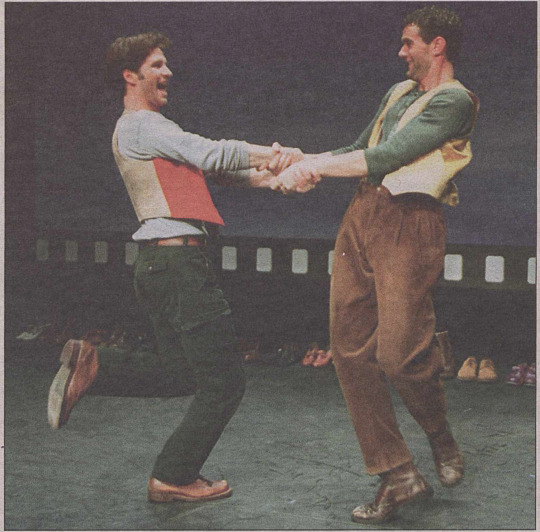
The extras take to Irish dancing at the wedding in the film
Hilmir Snær Guðnason and Stefán Karl Stefánsson in two of their fourteen roles. Photo credited to Pjetur for DV.
Cast list
After watching Hilmi Snæ Guðnason and Stefán Karl Stefánsson interpret this diverse gallery of characters with rare genius, it's hard to imagine other actors in the roles. Hilmir Snær has long proven that he is one of our most versatile actors, and even though Stefán Karl is a relatively recent graduate, he has already shown that he is one of the more promising newcomers in the acting profession. His talent is at its best in comedy and his performance in Stones in his Pockets certainly did not disappoint. It would take a longer story than can be found here to describe the nuanced interpretation of all these characters by the partners, so let it suffice to say that they both shone in this successful production.
Elín Edda Árnadóttir is credited with the excellent execution of a set that is both simple and symbolic. Ian McElhinney directs the play and makes no secret of the fact that he knows it very well, having staged it in many places. He has chosen the successful way of minimizing all external equipment, which means that the actors get to enjoy themselves to the fullest. Hilmir Snær and Stefán Karl do not fail him; they have a great performance in this show, which will no doubt be on the National Theatre's stage for a long time.
Halldóra Friðjónsdóttir
The National Theater is showing at Smíðverksðir: Stones in his Pockets by Marie Jones. Translation: Guðni Kolbeinsson. Lighting: Ásmundur Karlsson. Production of set design and costumes: Elín Edda Árnadóttir. Assistant director: Björn Gunnlaugsson. Directed by: Ian McElhinney
#stefan karl#stefán karl#stefan karl stefansson#stefán karl stefánsson#robbie rotten#2001#stones in his pockets
4 notes
·
View notes
Photo
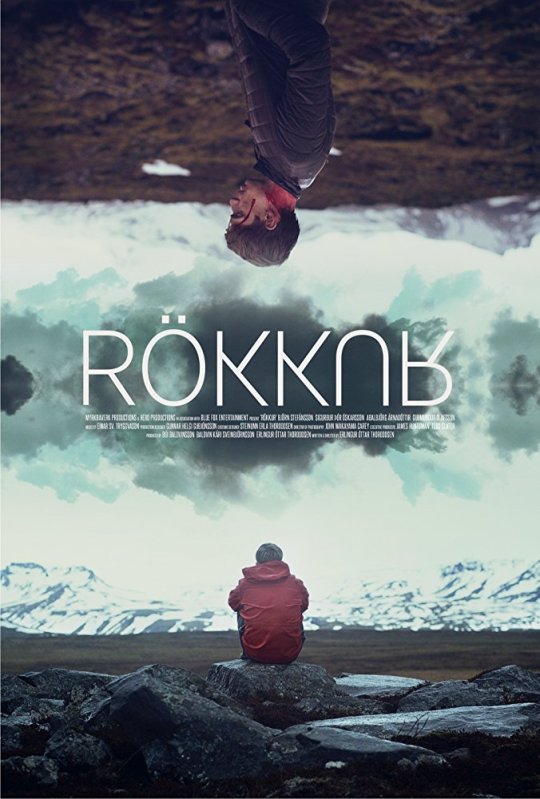
JUST WATCHED:Film: Rökkur (Rift) (2017).
Director: Erlingur Óttar Thoroddsen.
Music composed by: Einar Sv. Tryggvason.
Screenplay: Erlingur Óttar Thoroddsen.
Cast: Björn Stefánsson, Sigurður Þór Óskarsson.
Producers: Erlingur Óttar Thoroddsen, Búi Baldvinsson, Baldvin Kári.
0 notes
Text
The Deep
The Deep https://wp.me/pWrp7-9HL
recensione del film:
THE DEEP
Titolo originale:
Djúpið
Regia:
Baltasar Kormákur
Principali interpreti:
Ólafur Darri Ólafsson, Jóhann Jóhannsson, Þröstur Leó Gunnarsson, Björn Thors,
Stefán Hallur Stefánsson, Walter Grímsson, Guðjón Pedersen,
– 95 min. – Islanda 2012.
Ancora un bel ricupero estivo: un interessante film islandese del 2012.
Siamo nel villaggio di pescatori di Heimaey su un isolotto…
View On WordPress
#angoscia#Ólafur Darri Ólafsson#Þröstur Leó Gunnarsson#Baltasar Kormákur#Björn Thors#Cinema islandese#Eruzioni vulcaniche#Fortunali#Islandesi#Jóhann Jóhannsson#misteri#Pescatori#recensioni cinematografiche#Solitudine#The Deep
0 notes
Photo

Rökkur (Rift). Erlingur Óttar Thoroddsen. 2017. Iceland.
#film#Erlingur Óttar Thoroddsen#Erlingur Thoroddsen#Rökkur#Rift#queer cinema#Björn Stefánsson#Sigurður Þór Óskarsson
8 notes
·
View notes
Text
Hjörvar einn efstur fyrir lokaumferðina á Meistaramóti Hugins
Hjörvar einn efstur fyrir lokaumferðina á Meistaramóti Hugins
Sjötta og næstsíðasta umferð Meistaramót Hugins fór fram síðastliðið mánudagskvöld. Á efsta borði mættust Vignir Vatnar Stefánsson og Björn Þorfinnsson. Upp kom ítalskur leikur og voru báðir keppendur á því að Björn væri langt kominn með að valta yfir unga manninn. Það var þó bara byggt á tilfinningum beggja og samkvæmt tölvuforritum gat Vignir haldið sjó. Björn rataði ekki á rétta framhaldið og…
View On WordPress
0 notes
Text
[Fantastic Fest Review] RIFT Explores Haunting Isolation in Iceland
New Post has been published on https://nofspodcast.com/fantastic-fest-review-rift-explores-haunting-isolation-iceland/
[Fantastic Fest Review] RIFT Explores Haunting Isolation in Iceland
Rift (Rökkur) is a subtle horror film that explores every nook and cranny of the typical Horror convention, while still remaining a film of its own. We spend much of the film wondering just what shape our foe could take. But all the while we appreciate the journey the film takes us on. The Icelandic countryside is a gorgeous and haunting setting for a film about loss and loneliness.
Months after they broke up, Gunnar receives a strange phone call from his ex-boyfriend, Einar. He sounds distraught, like he’s about to do something terrible to himself. Gunnar drives up to the secluded cabin where Einar is holed up and soon discovers that there’s more going on than he imagined. As the two men come to terms with their broken relationship, some other person seems to be lurking outside the cabin, wanting to get in.
This film is a ballet. It effortlessly weaves between the spooky story it wants to tell us, and the stubborn nature of our complicated characters. There are ghosts to explore, but our heroes force themselves to wallow in the irreparable damage they’ve caused to each other. They languish in the pain of a dead relationship, and we wallow with them; gawking as they pick at a healing scab.
Einar (Sigurdur Thor Oskarsson) is wild, and youthful. But he’s lost. In an effort to get away from it all, he stays at his family’s cabin in a secluded outpost. The terrain is vastly beautiful, but isolating. One night, fuelled by alcohol, loss, or both – he leaves a haunting and slightly foreboding voicemail message with his ex- Gunnar (Björn Stefánsson). It seems there is unfinished business between the two, as even though Gunnar has moved on and is in a new relationship, he races to Einar’s rescue.
When Gunnar arrives, however – Einar seems to be in little distress at all. He chalks the entire phone call up to late-night nerves. Despite the brush-off, Gunnar decides to stay; it’s all under the pretense of a possible burglar or haunting plot, but we know these two have long unfinished business and conversations unsaid.
The tension raises considerably that first night when something real goes bump in the night. Gunnar immediately turns to investigation mode, visiting the cabin’s single neighbour down the lane and exploring an abandoned building not too far. A mysterious child in red appears, but we learn it’s very easy to lose one’s bearings alone in the countryside. Gunnar descends farther and father into the mystery, all while the the slumbered emotions of his and Einar‘s tumultuous past comes to a head.
Rift is a hypnotic film from start to finish. Despite an odd found-footage sequence that loses me a bit near the climax, this film is a chilling drama that kept my focus. Up until the final moments I had no concrete genre for which to pin it down. We all get a little bit lost in Iceland, chasing the ghosts of an unfinished relationship, and something all-together more spooky.
3/4 eberts
Rift is written and directed by Erlingur Thoroddsen. It stars Bjorn Stefansson, Sigurdor Thor Oskarsson, Gudmundur Olafsson, and Adalbjorg Arnadottir.
Rift premiered at the 40th Göteborg International Film Festival as the festival’s closing film. It won the award for Artistic Achievement at the 2017 Outfest Film Festival in Los Angeles, and Best Cinematography at the 20th annual California Independent Film Festival. It is currently playing at Fantastic Fest in Austin, TX. Additional screenings and festival dates can be found on the film’s website.
youtube
#fantastic fest 2017 reviews#fantastic fest rift#fantastic fest rokkur#foreign horror#gay horror#iceland horror#icelandic horror#indie horror#new horror#rift#rift horror iceland#rift movie 2017#rift movie iceland#rift rokkur#rift rokkur fantastic fest iceland horror#rokkur movie 2017#rokkur movie iceland
0 notes